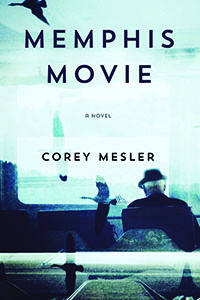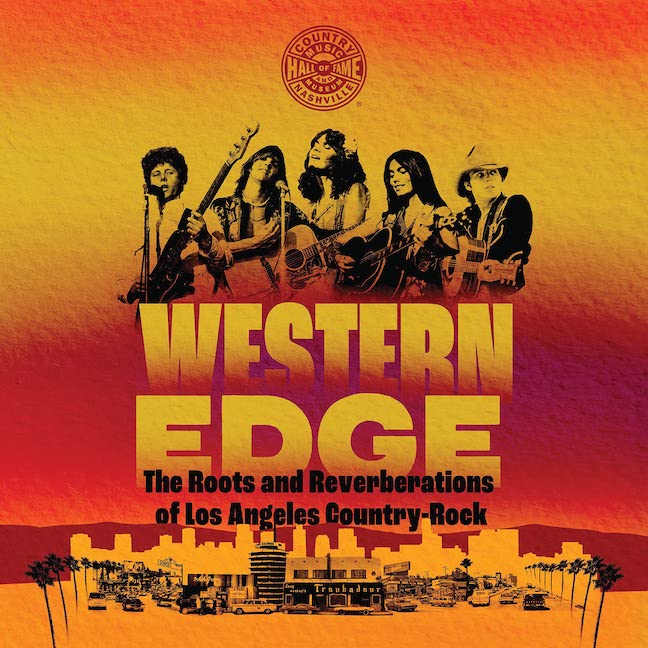Movie Magic
Corey Mesler’s Memphis Movie is a wild ride of a novel
An almost-washed-up movie director returns to his hometown to make a small indie film that just might salvage his career—assuming the script gets finished, the leading man shows up, and various ghosts don’t create too much distraction. That’s the premise of Memphis Movie, Corey Mesler’s latest wild ride of a novel, which combines Hollywood cynicism and debauchery with Memphis soul and eccentricity. The result is a broadly comic tale with a surprisingly sweet, rather sorrowful afterglow.
 The fictional director is Eric Warberg, a son of Memphis who made it big in Hollywood and now, edging up on the abyss of irrevocable failure, has returned to the city he describes as the place “where my heart goes when I am in need of solace, reparation, succor.” After a major flop, he’s hoping to restore his reputation. At least, that’s the line he gives to the reporter covering his comeback venture. When he’s alone, his thoughts focus more on the allergic effect of Memphis pollen and the plaintive question, “What am I doing here?” Warberg’s longtime lover and creative partner, Sandy Shoars, has joined him in exile and is trying to crank out a script for the as-yet-untitled “Memphis movie”—a task that has a certain urgency, given that shooting is about to start.
The fictional director is Eric Warberg, a son of Memphis who made it big in Hollywood and now, edging up on the abyss of irrevocable failure, has returned to the city he describes as the place “where my heart goes when I am in need of solace, reparation, succor.” After a major flop, he’s hoping to restore his reputation. At least, that’s the line he gives to the reporter covering his comeback venture. When he’s alone, his thoughts focus more on the allergic effect of Memphis pollen and the plaintive question, “What am I doing here?” Warberg’s longtime lover and creative partner, Sandy Shoars, has joined him in exile and is trying to crank out a script for the as-yet-untitled “Memphis movie”—a task that has a certain urgency, given that shooting is about to start.
The unfinished script is just one of many problems confronting our hero. His leading man, Dan Yumont, is initially AWOL and then wreaks havoc by seducing every female in striking range. Eden Forbes, the Arizona cattleman who’s bankrolling the project, insists on a new screenwriter with more “Memphis mojo.” Sandy appears to be having an affair that violates the spirit if not the rules of their “open” relationship, and while this development saddens Warberg, it doesn’t stop him from pursuing his own largely unsatisfying romantic fancies. Various manifestations of Elvis keep popping up, which is alarming but not nearly as disturbing as random appearances by the ghost of Warberg’s own father. As if all that weren’t enough, somebody is leaking insider info about this turkey-in-progress to a hostile critic.
 Memphis Movie is a playful novel, full of sly and not-so-sly jokes, but it’s not particularly lighthearted. Play can be intense and unsettling, and that’s the case here. This is ultimately a story about failure, aging, and death, about the way people come to terms with them or fail to. A subplot about the local script doctor, an ancient hippie poet named Camel Jeremy Eros, offers a gentle, wistful take on life’s inevitable downward slide, but Warberg has to confront his own thoughts of mortality without benefit of Camel’s spiritual resources, and they leave him in a state of existential despair. At a particularly low moment, his daddy’s ghost says, “But, now, Eric, the old nausea is back. You are finding the world strange and unwelcoming.” And so he is—with good reason.
Memphis Movie is a playful novel, full of sly and not-so-sly jokes, but it’s not particularly lighthearted. Play can be intense and unsettling, and that’s the case here. This is ultimately a story about failure, aging, and death, about the way people come to terms with them or fail to. A subplot about the local script doctor, an ancient hippie poet named Camel Jeremy Eros, offers a gentle, wistful take on life’s inevitable downward slide, but Warberg has to confront his own thoughts of mortality without benefit of Camel’s spiritual resources, and they leave him in a state of existential despair. At a particularly low moment, his daddy’s ghost says, “But, now, Eric, the old nausea is back. You are finding the world strange and unwelcoming.” And so he is—with good reason.
That said, the novel is a romp and definitely not for the prudish or the PC. It features a lot of sex of the non-procreative variety, and there is considerable lingering over the anatomical assets of the female characters—though, to be fair, it must be noted that Dan Yumont’s physique gets his share of ogling, too.
And speaking of Dan Yumont, Mesler has even more than his usual fun with names here: Sue Pine, Mimsy Borogroves, Ike Bana, Ricky Lime—the long list of characters is punster poetry. As you’d expect, the city of Memphis is a major character in its own right, and in addition to the usual hat tips to its well-known institutions and quirks, there are plenty of little jokes that only Memphians are likely to get. I have to confess that I had finished reading the book before it dawned on me that “Eric Warberg” is an anagram for Craig Brewer, the Memphis filmmaker who directed the indie hit Hustle and Flow.
But readers won’t need to know Memphis or even love puns to appreciate Memphis Movie. For all its waggishness, it’s a novel with a heart. Warberg’s plight, as bizarre and implausible as it might be, is a human one, and it touches the heart. Mesler’s wit and fondness for the absurd complement but never obscure the soul of this novel and its first-rate storytelling.

Maria Browning is a fifth-generation Tennessean who grew up in Erin and Nashville. A graduate of Mount Holyoke College, she has attended the Clothesline School of Writing in Chicago, the Moss Workshop with Richard Bausch at the University of Memphis, and the Sewanee Writers’ Conference. She lives in White Bluff.


